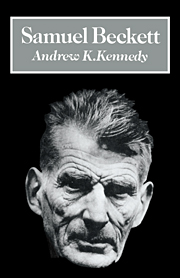Summary
We focus first on the epic sweep of Molloy's quest in part one of this novel: with its hilarious and horrifying digressions (the picaresque), its random but ultimately linked speculative questions (the philosophical novel), its parodic humour and lyrical pathos (remnants of ‘the old style’). True, the context of the whole work, indeed of the whole trilogy, is needed for its proper appreciation, especially of its narrative design – parallels and variations – but this context may be postponed for the moment.
Molloy's quest for his mother is one of Beckett's best-sustained narrative units, which can be read – ideally read aloud – with a delighted sense of immediacy. For there is nothing ‘slow’, in novelistic terms, about the laborious, halting, often arrested, and finally crawling movements of this half-senile cripple. His journey is doomed to seem interminable and futile, but his report on the journey (the self-conscious fiction) has a tone of despairing exhilaration. Molloy as narrator is ‘informative’ from the start; he may be an ignorant, agnostic or unreliable reporter, but he is not grudging with presentation of the self. He is not secretive, nor, given his limitations, obscure. His initial situation is presented with the forthrightness of a Robinson Crusoe: he is stranded in his mother's room, confined and obliged to tell of past adventures, of the long road to that room by his former self, before he had reached his present decrepitude: ‘What I'd like now is to speak of the things that are left, say my good-byes, finish dying’ (p. 1).
- Type
- Chapter
- Information
- Samuel Beckett , pp. 109 - 124Publisher: Cambridge University PressPrint publication year: 1989



